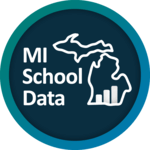Michigan's Content State Standards, traditionally focused on academics, have now been expanded to include Social Emotional Learning (SEL) competencies. This shift aims to support a well-rounded education that nurtures the development of the whole child. By integrating SEL into instructional practices and daily interactions, schools and caregivers enhance not only academic achievement but also the critical skills necessary for college and career readiness. Furthermore, a strong focus on SEL cultivates an environment that empowers teachers to teach effectively and students to learn, fostering success both in school and in life, as research has consistently shown.
Key SEL Competencies:
Self-awareness: The ability to recognize and understand one’s emotions and thoughts, and how they influence behavior. This competency involves an honest assessment of one's strengths and limitations, along with developing a well-grounded sense of confidence and optimism.
Self-management: The capacity to regulate one’s emotions, thoughts, and behaviors in various situations. This includes managing stress, controlling impulses, staying motivated, and setting and achieving personal and academic goals.
Social awareness: The ability to empathize with others from diverse backgrounds and cultures, understand social and ethical norms, and recognize available resources within family, school, and community networks.
Relationship skills: The ability to establish and maintain healthy, rewarding relationships with others. This includes clear communication, active listening, cooperation, resisting inappropriate social pressure, constructively resolving conflicts, and seeking or offering help as needed.
Responsible decision-making: The ability to make ethical, respectful decisions regarding personal behavior and social interactions, considering safety, social norms, consequences, and the well-being of oneself and others.
 Budget & Salary/Compensation Transparency Reporting
Budget & Salary/Compensation Transparency Reporting
 Michigan School Data
Michigan School Data